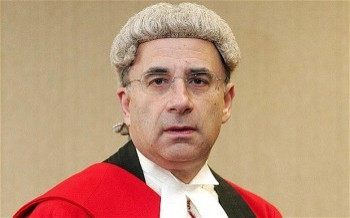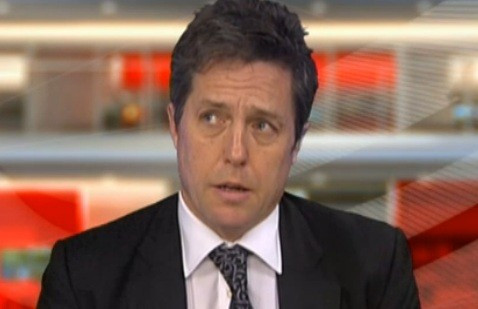Leveson Report on Press Standards: Finding a Balance between a Free Press and a Watchdog with Teeth

Prime Minister David Cameron has been given an advance copy of Lord Justice Leveson's report on media standards as press barons ponder how free Britain's newspapers will be in future.
Cameron was pressed on the issue during Prime Minister's Questions and told MPs: "A free press is absolutely vital for a democracy. Whatever changes we make, we want a robust and free press in our country."
His comment suggested that he did not intend to let the status quo remain and was poised to act on at least some of Leveson's recommendations.
Anticipation is high ahead of publication on Thursday. Leveson's recommendations could mark a turning point in how the press in Britain operates.
Cameron ordered the inquiry in 2011 following revelations about tabloid newspaper practices, including the hacking of child murder victim Milly Dowler's phone.
The debate since has been polarised between those who advocate a new press watchdog backed by statute, against opponents and those who fear that hard-won media freedoms would be corroded if politicians and Whitehall mandarins influence what the media can and cannot say.
Celebrity campaigners have joined the battle, including world-famous actors Hugh Grant and Steve Coogan - both of whom saw previous extracurricular antics publicly exposed.
Combined with pressure group Hacked Off, headed by former journalist and now media lecturer Brian Cathcart, a powerful voice is crying out for the press to be more constrained.

Grant explained: "What people are asking for is an end to newspapers continuing to regulate themselves, marking their own homework, because that is what has resulted in abuses like Millie Dowler and Christopher Jefferies [a school-teacher who came under suspicion of the murder of Jo Yeates in 2010].
"That's effectively what resulted in bribery of the police and over-influence on politics. This is about all manner of abuses and the law was found to be wanting because the police did not do their jobs and you have ask why government looked the other way. And it's because newspapers held the government to ransom, with their power.
"The newspapers always have had a code of practice. The only industry which is allowed to regulate itself is the newspaper industry. So we're saying we need a proper regulator, an independent regulator, that will need some statute to oblige papers to sign up to it," Grant told the BBC.
He and other press critics claimed they spoke for the nation. But polling for the Free Speech Network found that only a minority of respondents (24 percent) advocated new legislation to regulate the press.
Hacked Off hit back at the findings with a poll that found that three in four people wanted an independent press regulator and did not trust the press to police itself.
Press freedom advocate and author Mick Hume defended keeping the press free of interference by lawmakers.

"As a defender of press freedom with no buts, I cannot support any of the proposals discussed around Leveson," he said.
"Statutory backing of a new regulator is simply state intervention by any other name. And the alternative proposals put forward by Lords Hunt and Black, for an independent regulator with more powers to police and punish the press than are currently enjoyed by the police, make too many concessions.
"The danger now is not crude censorship but that an atmosphere is created in which we are left with a more sanitised, timid and tame press.
"Standing up for a free press means defending it for things we might not want to read or hear," Hume told BBC.
© Copyright IBTimes 2025. All rights reserved.





















